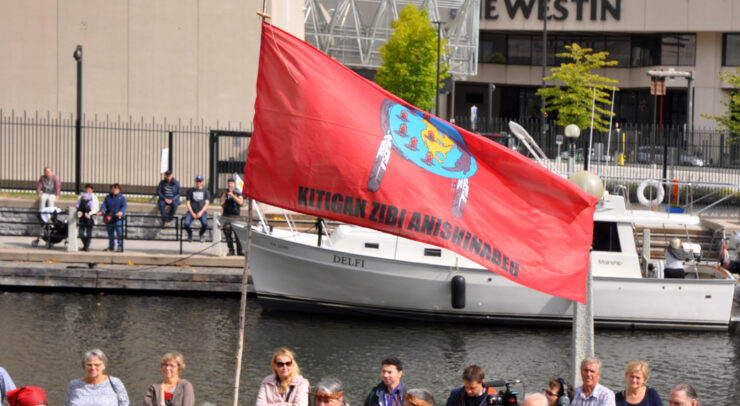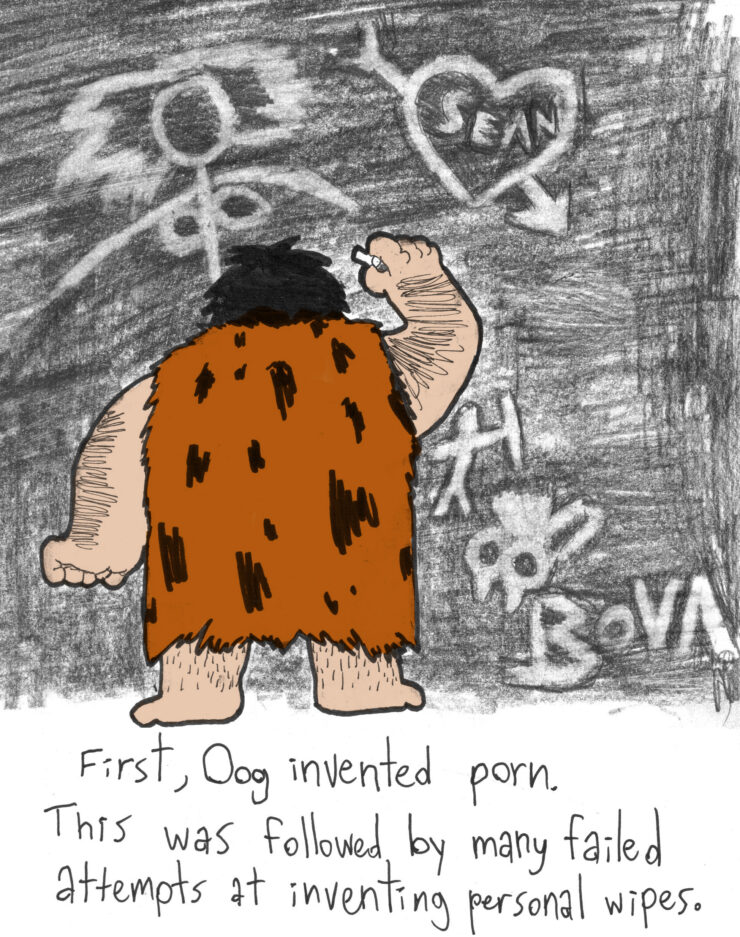Award honours Canadian nonfiction; historian Bourrie is the award’s final winner
The world of Canadian literature is dominated by writers of fiction, but for two decades the RBC Taylor Prize has elevated Canadian nonfiction authors. The $30,000 prize has been awarded for groundbreaking works like Tanya Talaga’s Seven Fallen Feathers, Thomas King’s The Inconvenient Indian, and Stalin’s Daughter by Rosemary Sullivan.
After 19 award ceremonies, however, 2020 marked the closing year for the Taylor Prize. The final winner, Mark Bourrie, is an alumnus of the University of Ottawa, completing his doctorate and law degree at the U of O. He spoke to the Fulcrum about the acclaim surrounding his newest book, Bush Runner: The Adventures of Pierre-Esprit Radisson.
“I was really surprised,” said Bourrie of his win. “I mean, I’m not trying to be modest … (but) from what I saw, I thought the books were great.”
At the March 2 awards ceremony in Toronto, Bourrie was joined by the four other finalists: Robyn Doolittle, author of Had it Coming; Ziya Tong for The Reality Bubble; Timothy C. Winegard for The Mosquito; and Jessica McDiarmid for Highway of Tears.
Bourrie did not expect to win himself, saying that “there was so much emotion around the Highway of Tears book that” he thought McDiarmid would take home the top honour. He describes Bush Runner as an “oddball book, written in … a different way” than other, more sober history books, but suspects that the risks he took as an author set him apart from the other four contenders.
Bourrie differentiates Bush Runner from other historical nonfiction “in the sense that Canadian history books are really parochial.” But the author tried to avoid this narrow viewpoint by weaving Radisson’s story into global histories — Bourrie describes it as his “renegade historian moment,” as he had “always wanted to write history differently” from the compartmentalized texts of other writers.
Bourrie has always had a passion for history and ties his childhood in Huronia north of Toronto to his recent interest in Radisson’s story.
“I grew up north of Toronto, (around) Georgian Bay, which is where the Huron-Wendat people live and so … I’d read everything (about the nation) I could get my hands on,” he said. This early interest in First Nations led Bourrie to study Iroquois property law at the U of O and eventually discover the life of frontiersman Radisson.
Radisson, a founder of the Hudson’s Bay Company, holds a complicated legacy in the mind of Bourrie. Radisson “would have worked for anybody,” said Bourrie. “He found a moment in Canada; he was just out for himself.”
Despite his self-interest, Radisson’s early tolerance of Indigenous peoples piqued Bourrie’s interest. “Around that time, Radisson is the only person who writes in a way that’s very sympathetic to Indigenous people,” he noted. “When you read Champlain or you read the Jesuits, they’re always trashing the people who are their hosts.” Radisson, instead, didn’t see himself as superior to Indigenous people, but he worked alongside them more or less as equal partners.
In writing his newest piece, Bourrie relied on the personal journals of Radisson, delving into the figure’s inner monologue. As well, Bourrie used academic texts, employing the skills he learned through his university education.
“I would really recommend master’s level work or doctoral level work to someone who wants to be a nonfiction author,” he said. Though he initially did not believe that his further education was worthwhile, Bourrie attributes his research and writing skills to his extended time as a student.
In the near future, Bourrie will use his prize money to rent a cottage and finish some writing for his upcoming books. “The prize money may have actually bought me the opportunity to save my own life,” Bourrie said. Worried about the spread of COVID-19, he is thankful for the opportunity to get away from the city and self-isolate.
While on vacation, Bourrie hopes to carry on with two upcoming books, one chronicling a 20th-century politician vying to be the “fascist leader of Canada,” and the other researching American president James A. Garfield’s overlooked assassin.
Looking forward, Bourrie laments the end of the RBC Taylor Prize and commended its positive influence on Canadian nonfiction.
Bourrie notes that nonfiction authors face difficulties when selling their works “with the collapse of media and the monopoly in retailing.”






